The Matrix and Deming
Explaining One of My Favourite Teaching Metaphors
THE AIM for today’s newsletter is to share with you one of my favourite metaphors that I use when explaining the Deming management philosophy to new managers and leaders, typically in the Gen-X to Millennial age bracket: the classic 1990s sci-fi hit film, The Matrix. This movie has spawned countless philosophical debates about existence, reality, and how we interact with the world, but its greatest utility to me is in how it explains the difference between what we believe is “the real world” of management on one hand, and what Dr. Deming’s proposed philosophy offers on the other.
This past weekend, I incorporated this metaphor in to a talk I gave about my views on Deming at the In2In Thinking 2025 Forum, hosted by one of its founders, Dr. Bill Bellows, in Santa Clarita, California. Here’s how I explain it:
The Matrix of Management
One of my favourite movies is the classic 1990s sci-fi thriller, The Matrix, about a talented programmer, Neo, who comes to realize something isn’t quite right with the world’s routines that he has to navigate every day. Something has always seemed off to him, like he’s an ill-fitting piece in a very big puzzle. He doesn’t know it yet, but his discomfort is caused by a simulation that envelops all of humanity, keeping them distracted while using them as a renewable power source in massive pod-farms.
In a key scene early in the movie, Neo meets his mentor Morpheus, who reveals the source of his daily cognitive dissonance: The Matrix. I’ve teed up the scene you can watch below:
In my talk, I created some comic book like scenes to illustrate this dialogue between Morpheus and Neo where he reveals what The Matrix is — this parallels how I explain Dr. Deming’s philosophy to new managers and leaders: they know something isn’t right with how they were taught to manage. There’s something… off about the world and they can’t quite put their finger on it:
This is my favourite part: Morpheus explains to Neo that The Matrix is designed to confound us by pulling the world over our eyes, blinding us from the truth that you’re inside a prison for your mind. That’s precisely how I see the Prevailing Style of Management:
We see this metaphor of a prison similarly described by Deming in the Preface to The New Economics - it restricts and controls our interactions in specific ways:
The rules of the prison are encoded into us from when we are very young and are enhanced over time with layers of facile thinking about how to manage daily phenomena that we see in our organizations and businesses. Below are some phrases Dr. Deming mused might be said in the prison yard — this is from Latzko & Saunders’ Four Days with Dr. Deming; see how many you recognize as relevant even today:
Subsequently, Morpheus offers Neo a choice: learn what the Matrix/Prevailing Style of Management is, or retreat back to the safety of ignorance. This is the classic Red Pill/Blue Pill decision that has now become part of the zeitgeist for 25 years:
This is a real conundrum for established leaders whose entire careers were built on mastering past competencies. It can be as destabilizing to them as it was to Neo in the movie to learn that they’ve been participating in a simulation rather than grappling with the real physics of their problems. Some reject it outright, some embrace it wholeheartedly, others need more time to bring themseleves to understand what Dr. Deming, like Morpheus, is offering.
This is effectively the choice before each person who begins to study Deming: take the blue pill 🔵 and you go back to managing “blind” by reacting with incentives, numerical targets without methods, objectives without understanding interactions, optimizing parts, rating and ranking people instead of systems and themselves, mistaking variation for causes, paying for performance, delegating quality, looking for instant solutions, and laying people off to balance the books.
Take the red pill 🔴, however, and Dr. Deming will not only show you how deep the rabbit hole goes, but also how vast the warren is, revealing the “world pulled over your eyes” that Morpheus alludes to with foreboding. And like Morpheus, he wants to see you escape a similar prison for the mind and body.
From here, we go straight into The Red Bead Experiment, as it is the fastest way I know of to help organize a jailbreak where participants begin to see their own Matrixes and begin to understand how to deconstruct them.
What do you think?
What metaphors do you use to explain Dr. Deming’s philosophy to new leaders, managers, and coachees? What do you think about the parallels between The Matrix and The Prevailing Style of Management? Where do you take them next to understand how to break out of their own prisons?
Let me know your thoughts in the comments below…


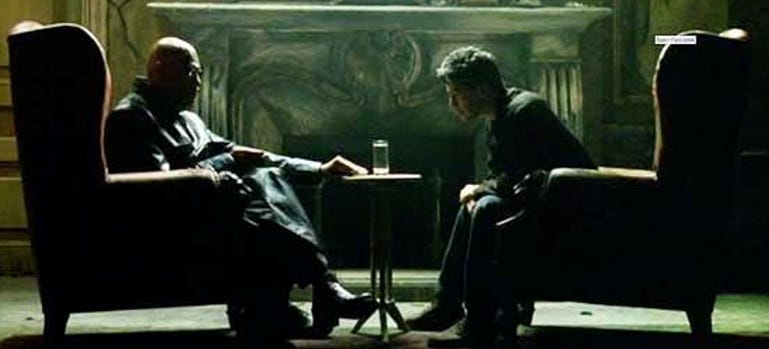
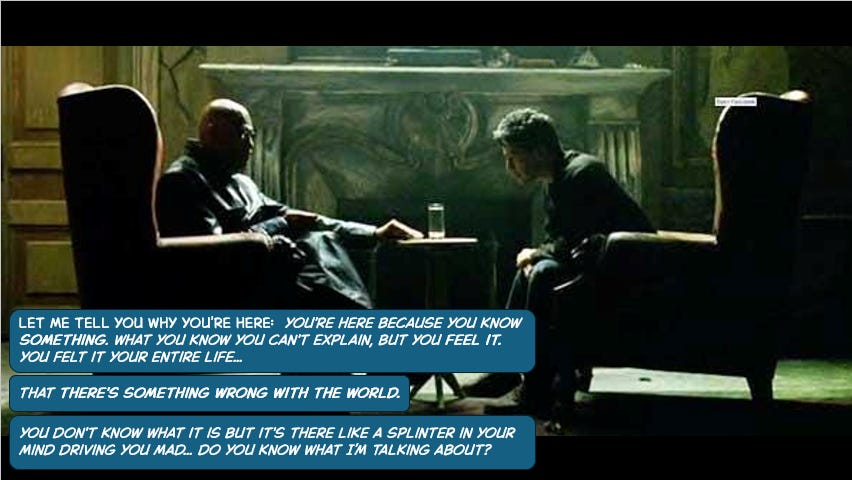
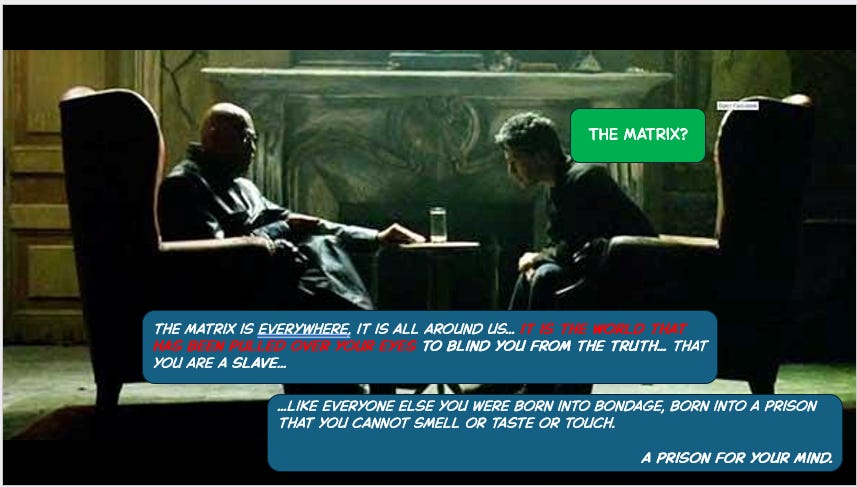
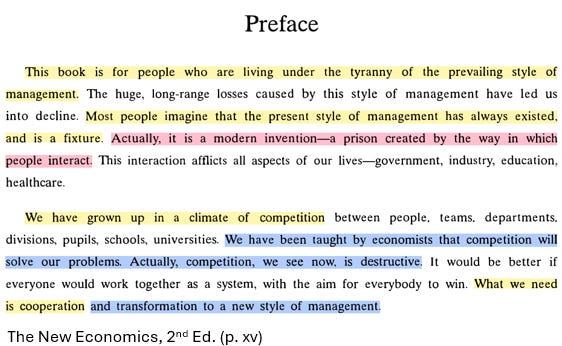
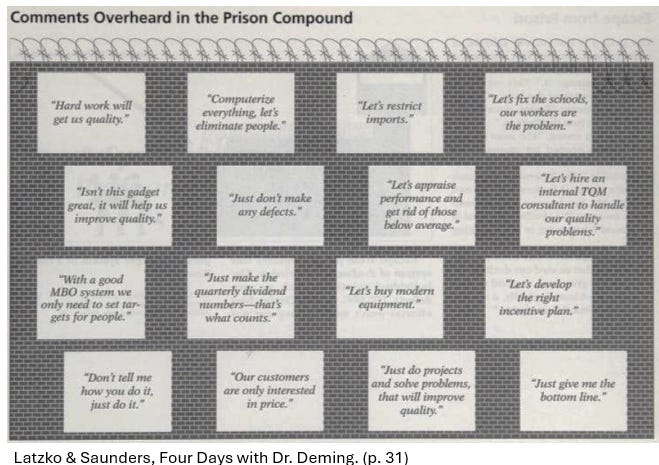
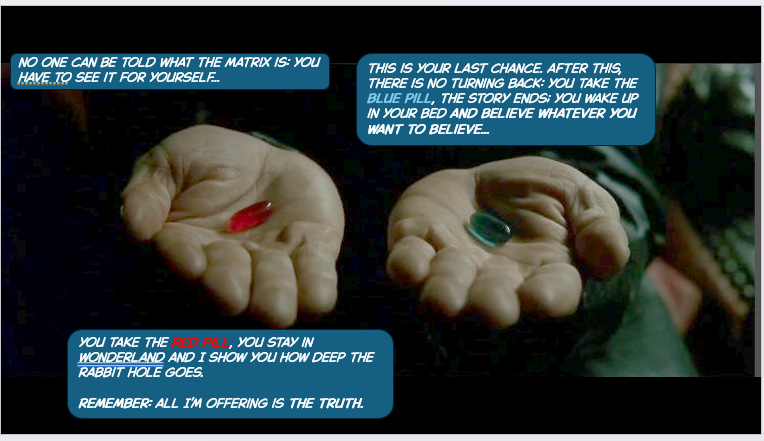
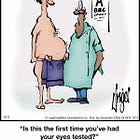



IQI Academy graduates have used this metaphor to describe their experience of learning how to see through the lens of the System of Profound Knowledge as taught by Dr. Deming.
The Matrix is an amazing movie, and the parallel's between "learning to see" with Deming, Agile, and Lean, are similar with the idea of "red pilling".
Unfortunately, the concept has been hijacked by other elements that aren't using the "red pill" to signify systems thinking, but instead extreme viewpoints. Even when "red pilling" was introduced by the creators of the Matrix, it was hinting at gender cultures that, at the time of the movie, were far from mainstream.
The challenge, in my opinion, is that there is no absolute objective perspective; and to those that declare the "truth" or "right" perspective do that only through power and coercion. What gives me, a lowly systems thinker, daresay servant leader, the "right" to say "my way is the best way of seeing what is really happening in a society, company, organization, etc..." - and moreover, that if you don't agree, that makes you "wrong"? I fall into the trap of "otherness" that the system I'm trying to reform wants me to fall into.